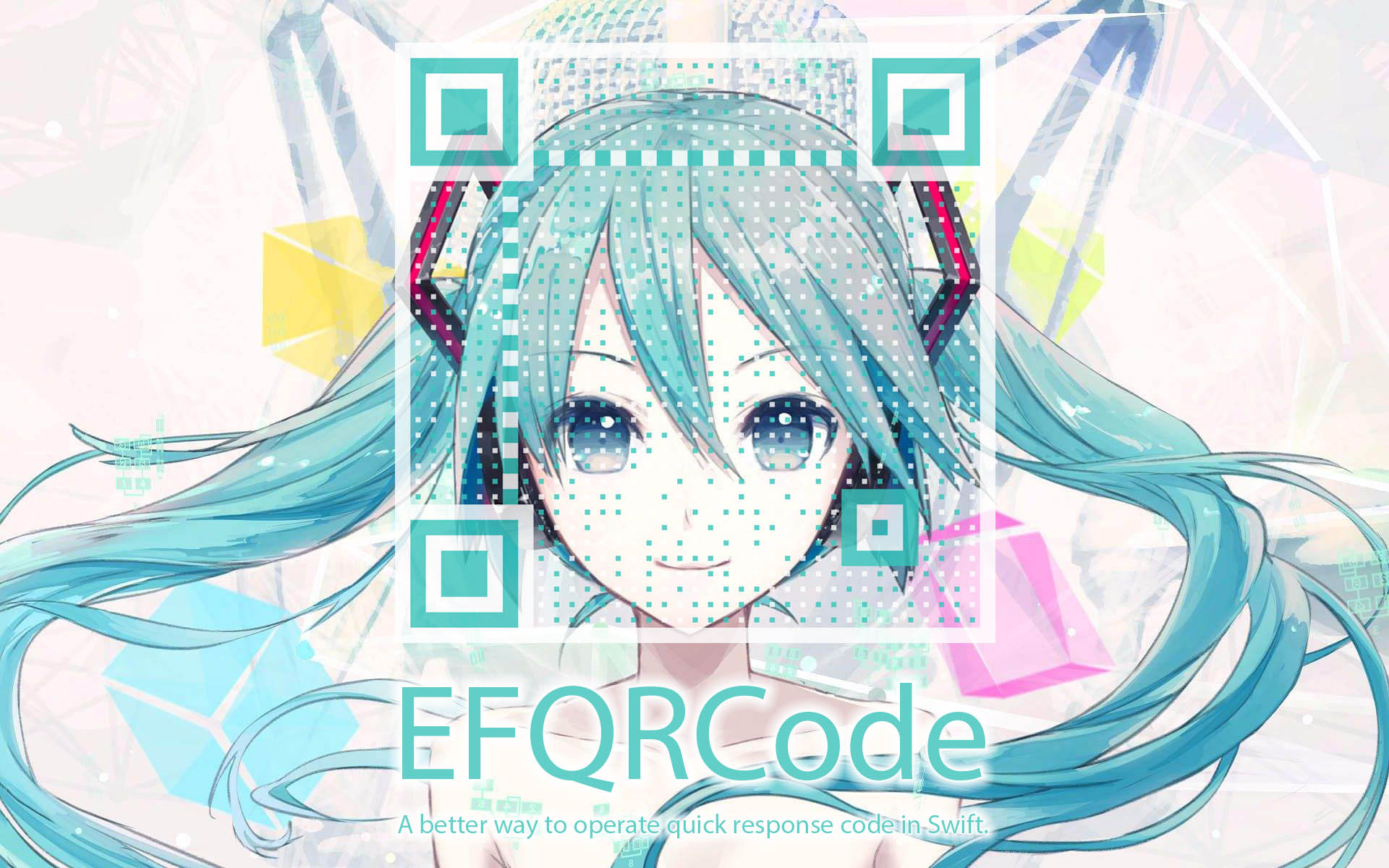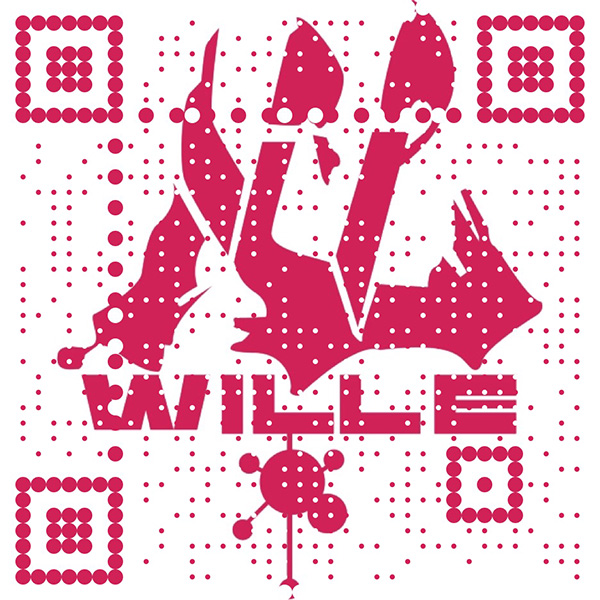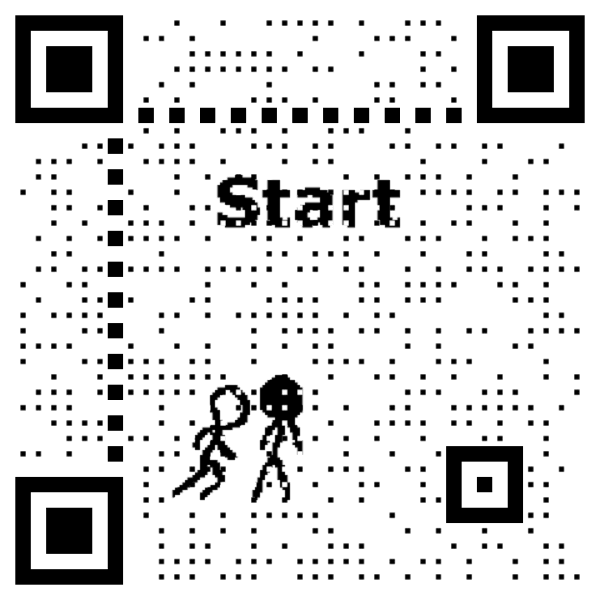A better way to operate QRCode in Swift, support iOS, macOS, watchOS, tvOS, and/or visionOS.

EFQRCode is a lightweight, pure-Swift library for generating stylized QRCode images with watermark or icon, and for recognizing QRCode from images, inspired by qrcode and react-qrbtf. Based on CoreGraphics, CoreImage, and ImageIO, EFQRCode provides you a better way to handle QRCode in your app, no matter if it is on iOS, macOS, watchOS, tvOS, and/or visionOS. You can integrate EFQRCode through CocoaPods, Carthage, and/or Swift Package Manager.
Examples
 |
 |
 |
 |
|---|---|---|---|
Demo Projects
App Store
You can click the App Store button below to download demo, support iOS, tvOS and watchOS:
You can also click the Mac App Store button below to download demo for macOS:
Compile Demo Manually
To run the example project manually, clone the repo, demos are in the ‘Examples’ folder, remember run command sh Startup.sh in terminal to get all dependencies first, then open EFQRCode.xcworkspace with Xcode and select the target you want, run.
Or you can run the following command in terminal:
git clone [email protected]:EFPrefix/EFQRCode.git; cd EFQRCode; sh Startup.sh; open 'EFQRCode.xcworkspace'
Requirements
iOS 13.0+ / macOS 10.15+ / tvOS 13.0+ / watchOS 6.0+ / visionOS 1.0+
Installation
CocoaPods
EFQRCode is available through CocoaPods. To install
it, simply add the following line to your Podfile:
pod 'EFQRCode', '~> 7.0.2'
Then, run the following command:
$ pod install
Carthage
Carthage is a decentralized dependency manager that builds your dependencies and provides you with binary frameworks.
You can install Carthage with Homebrew using the following command:
$ brew update
$ brew install carthage
To integrate EFQRCode into your Xcode project using Carthage, specify it in your Cartfile:
github "EFPrefix/EFQRCode" ~> 7.0.2
Run carthage update to build the framework and drag the built EFQRCode.framework into your Xcode project.
Swift Package Manager
The Swift Package Manager is a tool for automating the distribution of Swift code and is integrated into the Swift compiler.
Once you have your Swift package set up, adding EFQRCode as a dependency is as easy as adding it to the dependencies value of your Package.swift.
dependencies: [
.package(url: "https://github.com/EFPrefix/EFQRCode.git", .upToNextMinor(from: "7.0.2"))
]
Quick Start
1. Import EFQRCode
Import EFQRCode module where you want to use it:
import EFQRCode
2. Recognition
A String Array is returned as there might be several QR Codes in a single CGImage:
if let testImage = UIImage(named: "test.png")?.cgImage {
let codes = EFQRCode.Recognizer(image: testImage).recognize()
if !codes.isEmpty {
print("There are \(codes.count) codes")
for (index, code) in codes.enumerated() {
print("The content of QR Code \(index) is \(code).")
}
} else {
print("There is no QR Codes in testImage.")
}
}
3. Generation
3.1 Create QR Code with static image
let generator = try? EFQRCode.Generator("https://github.com/EFPrefix/EFQRCode", style: .image(
params: .init(image: .init(image: .static(image: UIImage(named: "WWF")?.cgImage!), allowTransparent: true)))
)
if let image = try? generator?.toImage(width: 180).cgImage {
print("Create QRCode image success \(image)")
} else {
print("Create QRCode image failed!")
}
Result:

3.2 Generation from animated images
You can create a dynamic QR code by passing in a sequence of animated images. The usage method is as follows:
let generator = try? EFQRCode.Generator("https://github.com/EFPrefix/EFQRCode", style: .image(
params: .init(image: .init(image: .animated(images: cgImages, imageDelays: cgImageDelays))))
)
if let imageData = try? generator?.toGIFData(width: 512) {
print("Create QRCode image success \(imageData)")
} else {
print("Create QRCode image failed!")
}
You can get more information from the demo, result will like this:

3.3 Exportable types
- Static: NSImage, UIImage, PDF, PNG, JPEG
- Animated: APNG, GIF, SVG, MOV, MP4, M4V
4. Next
Learn more from DeepWiki.
Recommendations
- Please select a high contrast foreground and background color combinations;
- To improve the definition of QRCode images, increase
size; - Oversized generation dimensions, excessive QR code content, and overly large imported media may lead to generation failures;
- It is recommended to test the QRCode image before put it into use;
- You can contact me if there is any problem, both
IssueandPull requestare welcome; - Part of the pictures in the demo project and guide come from the internet. If there is any infringement of your legitimate rights and interests, please contact us to delete;
- Wish you can click the
Starbutton if this tool is useful for you, QWQ
Contributors
Backers
Sponsors
- Thanks for the help from MacStadium’s Open Source Program.

- Thanks for the help from JetBrains’s Open Source Support Program.
Contact
Email: [email protected]
License
EFQRCode is available under the MIT license. See the LICENSE file for more info.




